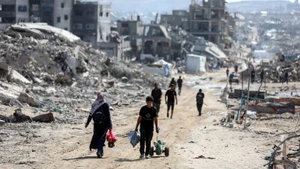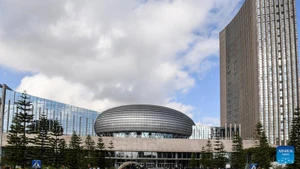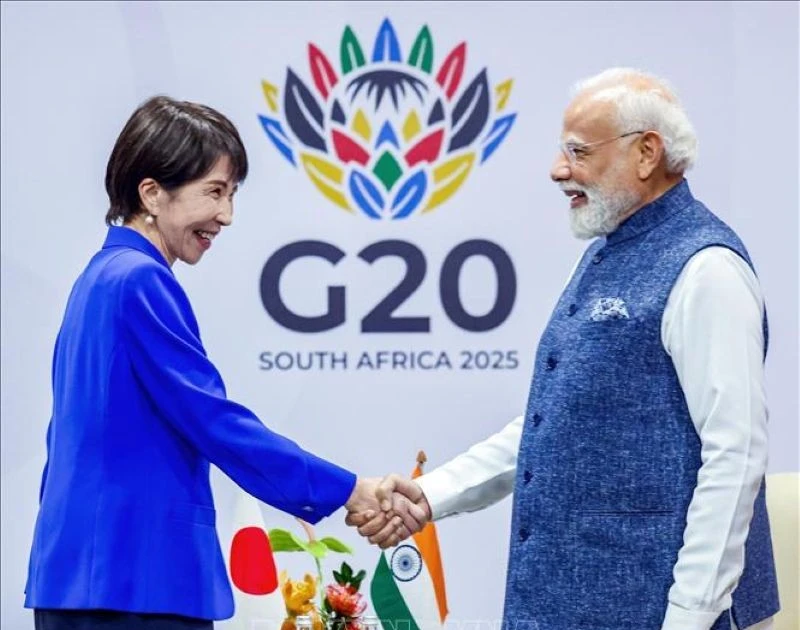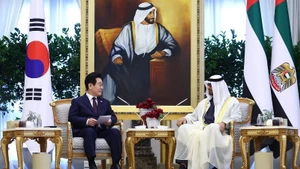The AIS Summit took place at a time when archipelagic and island states around the world are facing a series of negative impacts due to rising sea levels, environmental pollution, and biodiversity loss.
The United Nations emphasises that climate change has the first and direct impact on Pacific island nations. In that context, the summit called on countries to strengthen collaboration to address global issues with four main areas of focus: climate change mitigation and adaptation, the blue economy, marine plastic debris, and good maritime governance.
Gathering the participation of leaders from many AIS member states and international organisations, the first AIS Summit is considered a landmark event, creating the foundation for island nations to work out a common direction, contributing to solving global challenges.
Indonesian Foreign Minister Retno Marsudi called on archipelagic and island states to stand in solidarity and work together, making the AIS Forum a “lighthouse” for developing inclusive cooperation to tackle various global challenges
The AIS Summit showed that island states have affirmed their more important voice in handling global issues and also at many international forums.
This was also clearly shown at the High-level Week of the 78th session of the UN General Assembly, which took place last September in New York, USA, as the voices of island states such as Kiribati, Tuvalu, Nauru and Timor-Leste received an enthusiastic response from the international community.
Thanks to their increasingly enhanced geopolitical position, island states have an important position in the foreign policies of major countries. At the end of September, US President Joe Biden met Pacific island leaders for a second White House summit and welcomed the leaders of 18 Pacific island countries to the White House, on the occasion of the second US-Pacific Island Forum (PIF) Summit.
A great deal of history in our world is going to be written in the Indo-Pacific over the coming years and decades. Pacific islands are a critical voice in shaping that future.
US President Joe Biden
Previously, Washington announced the establishment of diplomatic relations with two Pacific island nations, the Cook Islands and Niue.
The US also opened embassies in the Solomon Islands and Tonga. In 2022, the US Secretary of State visited Fiji, marking the first time in 36 years that a U.S. secretary of state had visited the South Pacific archipelago.
The above-mentioned drastic steps have shown Washington's determination to strengthen connections with this region, as President Biden once emphasised that a great deal of history in our world is going to be written in the Indo-Pacific over the coming years and decades. Pacific islands are a critical voice in shaping that future, he stressed.
That is why his administration has given priority to strengthening America’s partnership with the Pacific countries and with the Pacific Island Forum, he said.
At the first summit between the Republic of Korea and 18 PIF members last May, Seoul pledged to double the annual budget, for overseas development grants in the agricultural sector, to 500 billion won (US$401.4 million) by 2027, while increasing the provision of finance and technology to help PIF members respond to climate change.
On the occasion of the Forum for India–Pacific Islands Cooperation held in Papua New Guinea, Indian Prime Minister Narendra Modi affirmed that New Delhi is a reliable partner of Pacific island countries, who are facing difficulties due to disrupted supply chains and climate change.
The voices of island nations are increasingly respected because they are the major “victims” of climate change. In a recently published report, the World Meteorological Organisation (WMO) warned that sea levels in the South-West Pacific are rising faster than the global average, causing increasingly high tides, and threatening low-lying islands. Rising sea temperatures also cause serious damage to marine ecosystems.
According to WMO, in 2022 alone, the region recorded 35 natural hazards, including floods and storms, that killed more than 700 people and directly affected more than 8 million people. More worryingly, the rise in sea levels is threatening the survival of island nations.
Suffering the direct impact of rising sea levels, island nations’ voices need to be listened to, understood and supported by the world, in their efforts to adapt to climate change.
















